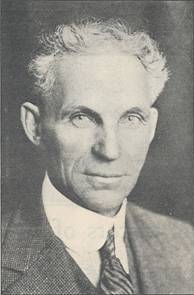|
|
by Rick Baker
On May 12, 2011
Keep your energy dry.
In times gone by, before they had pre-made bullets - military people, hunters, and other folks who used guns had to make their own bullets.
Every time I think of this it reminds me of the story about Lord Nelson…Vice-Admiral Horatio Nelson…the fellow who defeated Napoleon’s navy in 1805 at Trafalgar.
The first role in Nelson’s naval career was coxswain on HMS Carcass. The ship, under Commander Lutwidge, was part of an expedition seeking the fabled NorthWest Passage [to India]. During the trip toward the North Pole the ship landed in [I believe it was] Iceland. The year would have been 1771, maybe 1772. Horatio Nelson was about 13 years old. While on shore young Horatio came face to face with a polar bear. He took aim with his gun and fired. At least, he tried to fire his gun. The gun failed to fire. His gunpowder just flashed in the pan. That means it fizzled and did not result in a fired shot.
Obviously, Nelson lived to fight another day…Nelson became England`s most-famous Naval leader.
I am sure Nelson learned a big lesson that day. I am sure that lesson caused him to take extra care to ensure his firearms were always ready for use. Probably part of the lesson was - keep your powder dry. Maybe damp powder caused his near-fatal flash in the pan?
Regardless, there is an important message here.
From time to time, we can think of old muskets and how people who owned old guns knew they had to keep their powder dry. Their gunpowder provided the energy they needed to take their shots. They had to keep their energy dry.
Similarly, you need to keep your ‘energy dry’…so your energy is ready to perform when it is time for you to make your shots…your best business shots.
If you are a low-energy person then this makes immediate sense. If you are a low-energy person then you cannot afford to waste any energy. So, you must use your energy wisely to get the highest results possible. You know you have a ‘limited amount of gunpowder in your pouch’…so you want to keep it dry and you want to conserve it.
If you are a high-energy person it still makes sense to keep your energy dry…and there is an additional reason. ‘High-energy’ needs to be handled with care because ‘high-energy’ can burn other people and it can burn out its owner. “Muskets can only handle so much powder.”
One of my Leadership heroes…Lord Nelson
eb896a6b-5873-4e51-9874-48a41e7eea40|1|5.0
Tags:
Hero Worship
by Rick Baker
On May 5, 2011
Experts tell us people change when they are exposed to crime for extended periods of time. Their tolerance for the crime escalates this way:
- At first they abhor or object to the crime
- Then they become tolerant of or unbothered by the crime
- Then they embrace and participate in the crime
- Then they gain an appetite for escalated crimes
We know real-life situations…for example, the way violence by captors can escalate as unfair treatment of prisoners of war.
Psychology experiments have shown the crime situations do not even have to be real to have a major impact on behaviour. For example, consider the shocking results of the Stanford Prison Experiment [conducted in 1971].
In the Stanford Prison Experiment, students were placed in two groups: prisoners and guards. In a very short period of time the ‘guards’ became very abusive and the ‘prisoners’ became passive. The organizers had to stop the experiment before it resulted in serious damage.
Real-life experiences confirm crime has other surprising effects on people’s behaviour.
Stockholm Syndrome [in summary]: sometimes prisoners develop positive feelings for their captors and sometimes prisoners emulate the attitudes and actions of their captors.
Crime can change deep and well-rooted thoughts and habits….replacing Good Habits with Bad Habits.
If crime can change habits then it isn’t too much of a leap to accept more positive and constructive endeavours such as the pursuit of financial success can also change habits…wealth and success orientations and situations can change habits for the better.
This has been known for millennia:
We are what we repeatedly do. Excellence then is not an act, but a habit.
Aristotle…student of Plato…tutor to Alexander The Great
by Rick Baker
On Apr 26, 2011
I recently listened to a well-known and respected motivational speaker.
I was surprised to hear him say we must not use the word ‘Problem’.
He advised, instead of saying ‘Problem’ we should say ‘Challenge’.
For at least 2 good reasons, I think this is bad advice:
- The word ‘Problem’ is not the problem with problems. The problem with problems is the reaction we have when they visit us. Motivational speakers, including the one I just listened to, know this. They make it clear we must adjust our reaction to problems…which many of them prefer to call – challenges. And, they give advice on how we can adjust our reactions. Regardless, many of them say the use of the word ‘Problem’ is a part of the problem with problems. If their thinking is accurate and the use of the word ‘Problem’ contributes to the problem of problems then…soon…after we all are accustomed to using the word ‘Challenge’ in place of the ‘P-word’…soon…the word ‘Challenge’ will become part of the challenge of challenges. We will have gone through a full word circle to get to the same place we are now.
At the risk of flogging a dead horse: the word ‘Problem’ has evolved from the Greek word ‘problema’… "a problem, a question"…literally "a thing put forward". So, a word that started as a thing put forward has become such a problem of a word we need to change it to challenge. If we do this then sooner or later we will also end up having to change the word challenge… some new word.
- I do not believe we can trick the subconscious mind into believing those things called Problems somehow are eased by changing their names to Challenges. Maybe, they would be eased over generations…but, that wouldn’t solve this matter because #1 [above] would happen at a similar pace.
Conclusions:
- We will always have Problems. And, we will always have a word for them…that word might as well be ‘Problems’. At least, we are used to that word.
-
We will always do better if we learn how to adjust our reaction to Problems. That takes time and thought and effort. Tools help.
That’s why we created the P=2S+O© tool.
For every Problem you can come up with at least 2 Solutions and, from time to time, you will uncover Opportunities.
Footnote:
“Intellectuals solve problems, geniuses prevent them.” Albert Einstein
by Rick Baker
On Apr 19, 2011
While listening to audio book 'The Now Habit At Work’, it occurred to me the words time management may be stalling people.
I mean, most people can not manage time nor would they even try to manage time. Time is a concept. Time is a concept most people either take for granted or don’t think about. Time is a concept most people don’t want to dwell on let alone manage.
When we use the words 'time management' we are not speaking accurately.
And, we may be stalling people, which, of course, is the exact opposite of our goal.
I am not saying people may be consciously aware we are stalling them.
I am saying, when other people experience us using that word combination – time management – maybe we are setting off a subconscious reaction that causes them to stall.
Regardless, I think that word combination is just plain wrong. Few human beings have the ability to manage time. Maybe some monks or yogis probably can manage time? Perhaps Albert Einstein could manage time? [He knew a lot more about time than most of us.] We hear stories about people who face extreme danger and, somehow, their subconscious mind slows time for them. Or, at least, they manage to cram a huge amount of indelible perception into a small amount of time. Maybe those are some examples of time management? There are other examples like that...if they are examples of time management then time management is rare.
So, for most people the words 'time management' set a confusing ‘bar’. Maybe that bar is set too high or maybe that bar doesn’t make sense at all. I think it is the latter.
So, we need to use other words when we want people to ‘manage their time’.
We could use self-management but that is not ideal because that’s a broad topic that goes beyond the ‘management of time’.
From now on, I intend to use the words ‘action management’. That’s what we want to do and that’s what we want other people to do. We want to manage our actions.
It mentions 'strategic cramming', i.e., leaving some things to the last minute. I like that strategy because it is a way to Procrastinate For Success. I believe you can build 'action strength' by using methods like strategic cramming. You can - and at least some of the time you should - intentionally refrain from doing tasks until the very last minute. Then, when you [finally] do the task you should concentrate, focus, and expedite your action. Build this strength. It is a valuable strength.
Teach yourself you can do it – teach yourself you can handle last-minute crunches.
This is a sample of Procrastinate For Success. Methods like strategic cramming help you gain skill (concentration) and it help you gain something more important - confidence. When we Procrastinate For Success that skill and the benefits it provides snowball...the more you do it the better you get at it. Maybe your skill will become so great you will want to leave everything to the last minute?
by Rick Baker
On Mar 30, 2011
Sales Tweet #183 "It usually takes more than three weeks to prepare a good impromptu speech." Mark Twain
The Thinking Behind the Sales Tweet
I am fascinated by skilled public speakers. What value for their audiences! And, Mark Twain, with that amazing wit of his…provides a very important message with this quote. Here is another you can apply to public speaking: Abraham Lincoln – "Give me six hours to chop down a tree and I will spend the first four sharpening the axe."
by Rick Baker
On Mar 3, 2011
Did Henry Ford fire people for smiling during working hours?
Did Henry Ford believe the workplace was for work and everything personal should be left at home before we head off to work?
Did Henry Ford believe casual chats and humour had no place in the workplace?
Whether fact or legend, perhaps the answer is not important.
But, the topic of humour in the workplace is important.
I agree with U.S. President Dwight D. Eisenhower, who said:
“A sense of humor is part of the art of leadership, of getting along with people, of getting things done”
Whether you agree or not, you may want to consider the following sorts or questions:
- Does workplace humour promote creativity or innovation?
- Does workplace humour promote harmony amongst co-workers?
- Does workplace humour reduce people’s stress levels?
- If workplace humour is a good thing…what type of humour is acceptable?
- If workplace humour is a good thing…how much is the right amount?
- If workplace humour is a good thing…how should we bring it about?
 |
Henry Ford
Apparently, as he grew older Henry Ford relaxed his approach to discipline.
← an interesting expression…
|
 |
|
Mona Lisa →
|
“Coming together is a beginning; keeping together is progress; working together is success.”
Henry Ford
“Don't find fault, find a remedy.”
Henry Ford
|
|